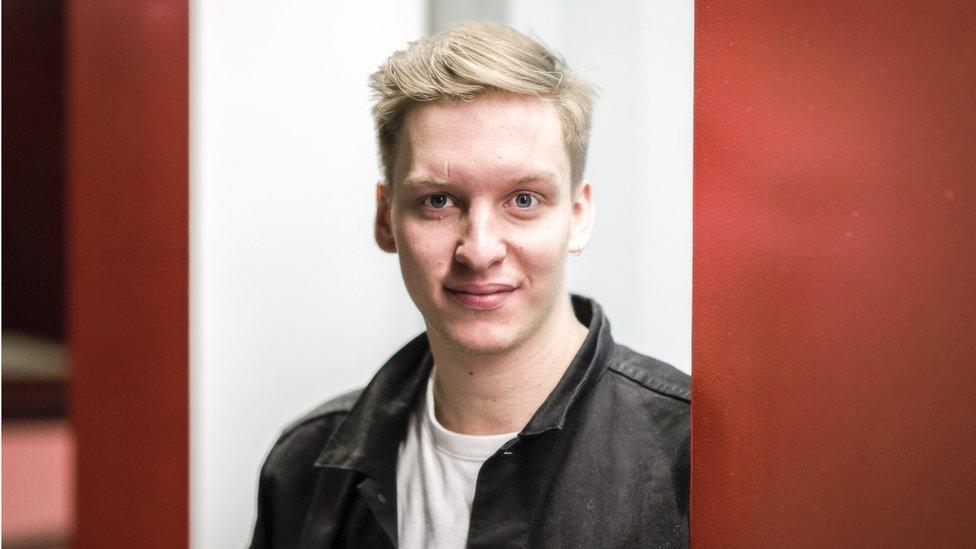Obsessive compulsive disorder: Volunteering 'a way of accepting what happened'
- Published
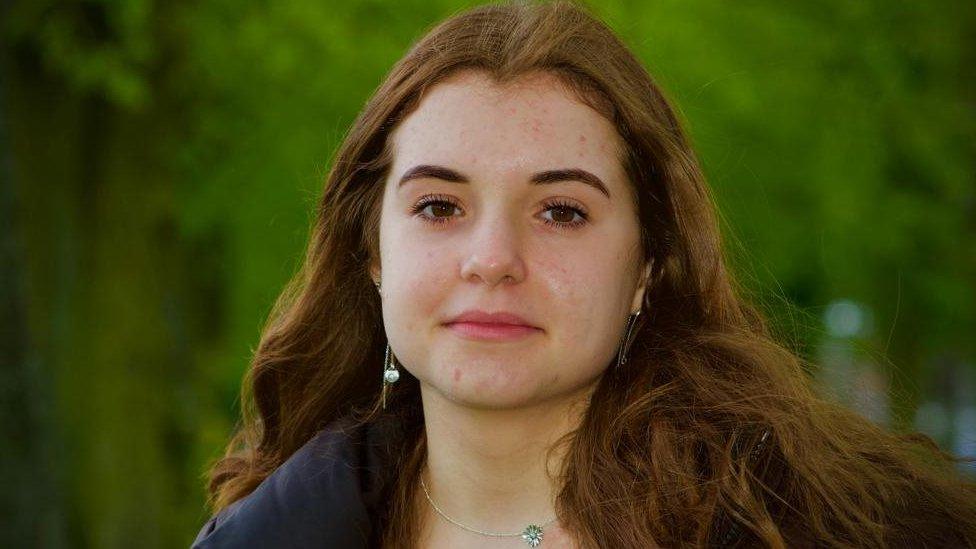
Emily was 11 when she started to "struggle with the OCD"
A teenager whose obsessive compulsive disorder (OCD) "took over" her life has said volunteering has become a "way of accepting what happened".
Emily, 16, from Suffolk, said she was 11 when she started to "struggle with the OCD" and it gradually got worse for about four years.
She has since received help and admitted it had "taken a while for me to kind of find who I am again".
Emily has now begun volunteering with the Anna Freud children's charity.
She was speaking as local BBC radio stations launch the Make a Difference Happy Heads campaign, promoting opportunities to volunteer with organisations to support children and young people's mental health and well-being.
Emily volunteers as a "young champion", speaking with mental health professionals about their experiences "to try to help services and other people understand young people's mental health and give them a bit of a voice".
She said of her volunteering: "It's a way of accepting what happened and being able to try to change opinions on mental health."
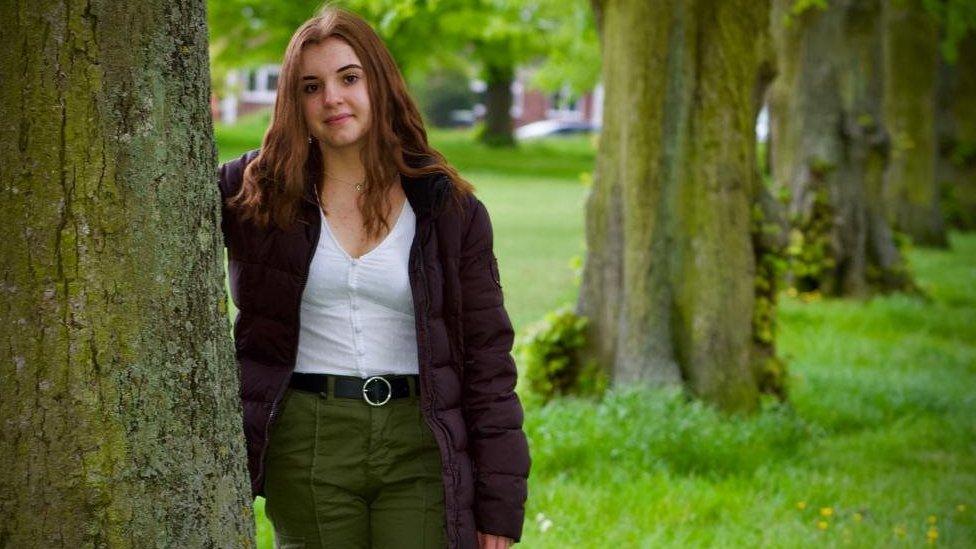
Emily is now volunteering with the Anna Freud charity
With her OCD, a condition where a person has obsessive thoughts and compulsive behaviours, she said that at one point it got to the stage where she would "spend maybe an hour and a half doing the rituals before I left the house".
"Communicating with people was difficult because a lot of the time I just wanted to be doing the rituals in my head and I wouldn't be listening to what they were saying," said Emily.
"I wasn't concentrating on anything but the rituals because that was the most important thing to me, to stop something bad happening to someone else."
She said eventually when it began "taking over my life I was a lot more able to accept the help".
"It's a long process. It's taken a while for me to kind of find who I am again, because it took over.
"For people to see me as me, go on a walk with me, go out with me, have a laugh with me - it took a long time for me to accept that I could be me again."
If you, or someone you know, have been affected by mental health issues the BBC Action Line has a number of organisations that may be able to help.

Find BBC News: East of England on Facebook, external, Instagram, external and Twitter, external. If you have a story suggestion email eastofenglandnews@bbc.co.uk
Related topics
- Published18 May 2021
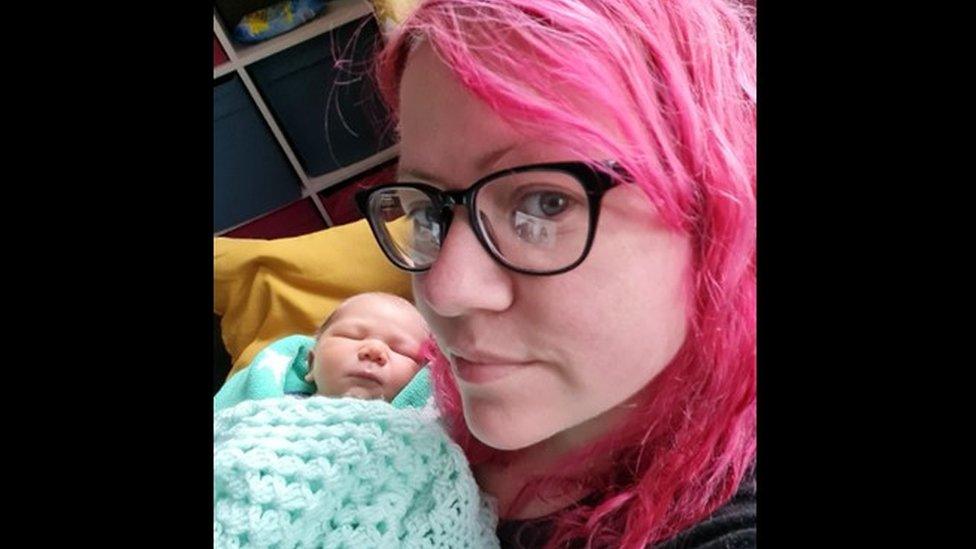
- Published18 March 2021
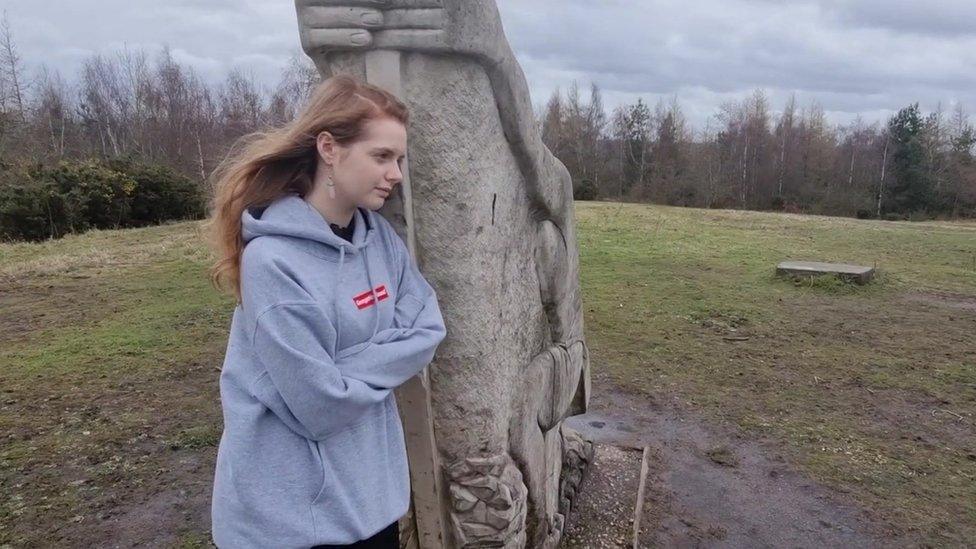
- Published10 May 2021
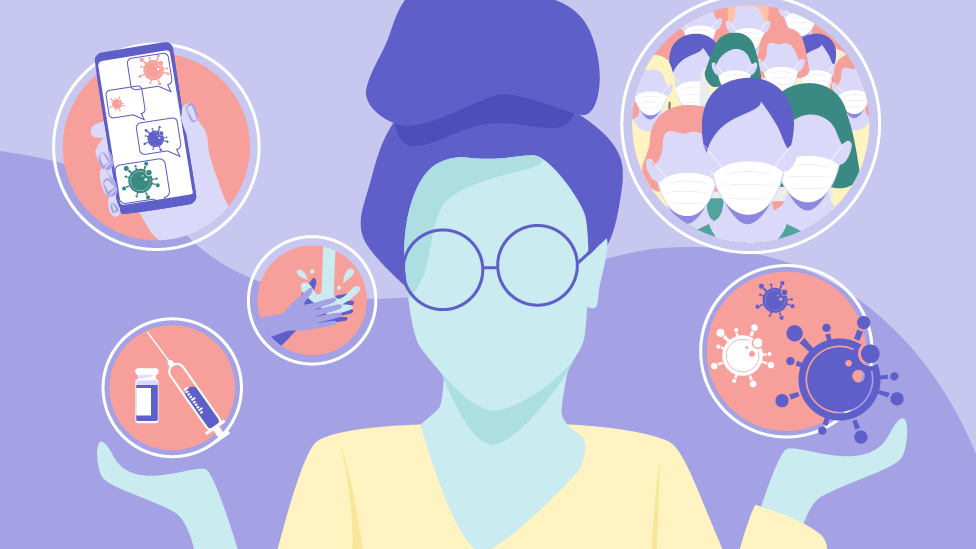
- Published1 September 2020
